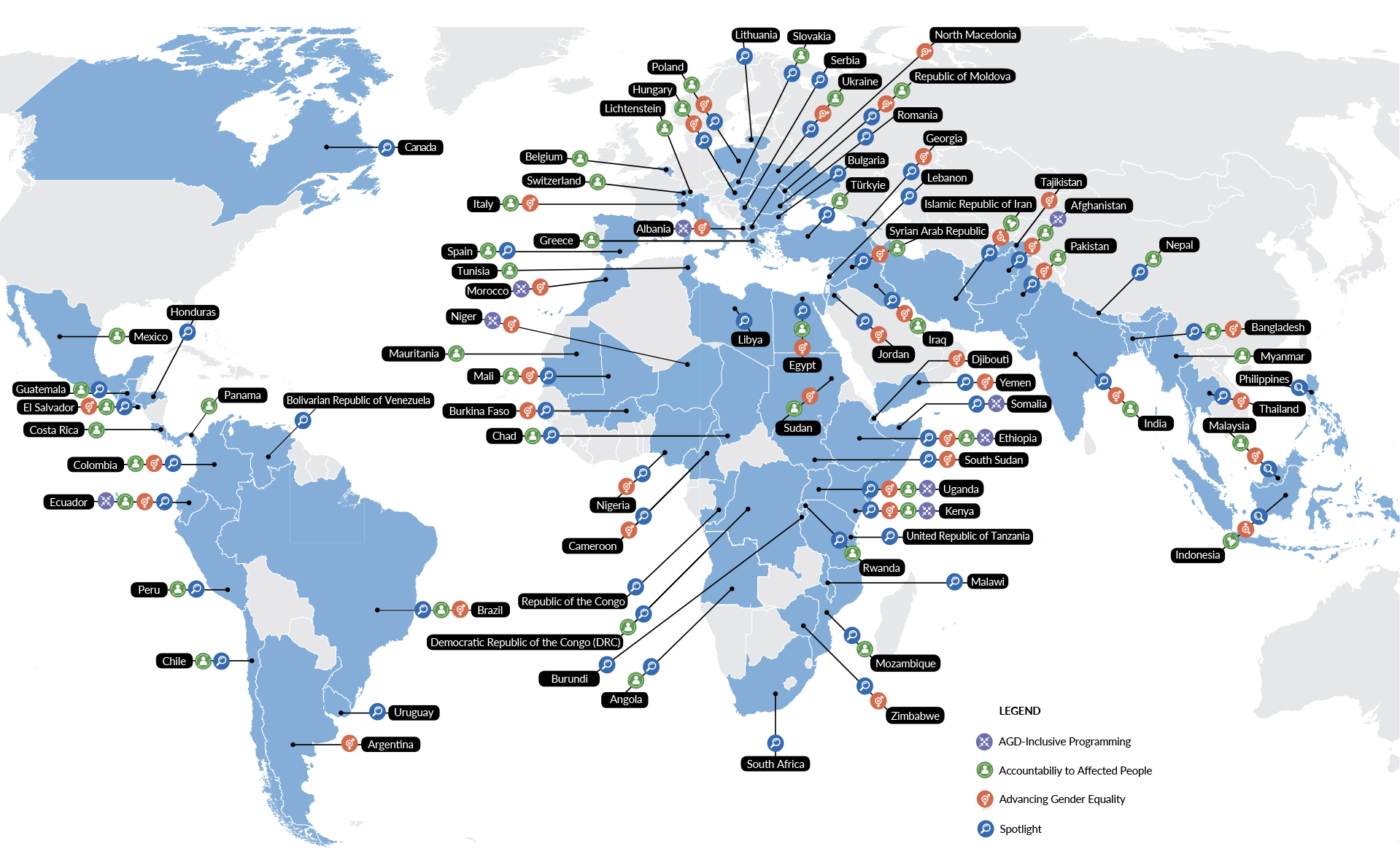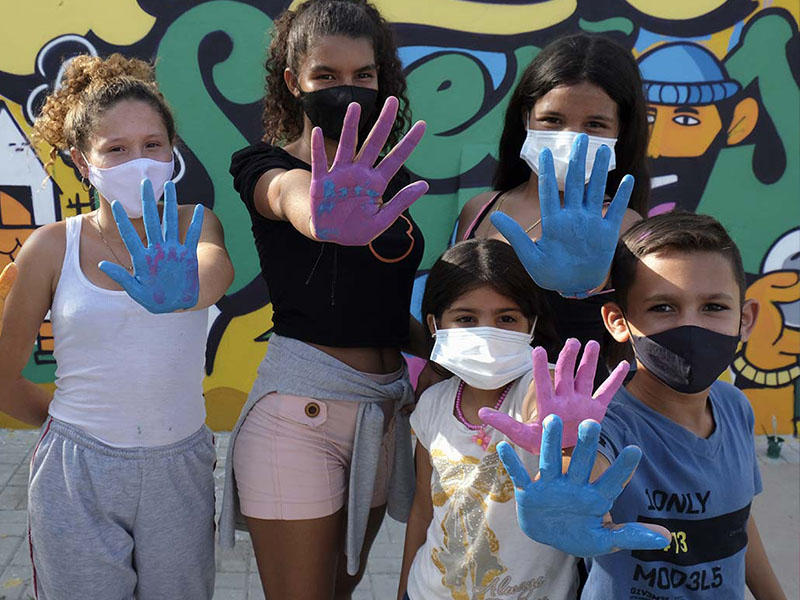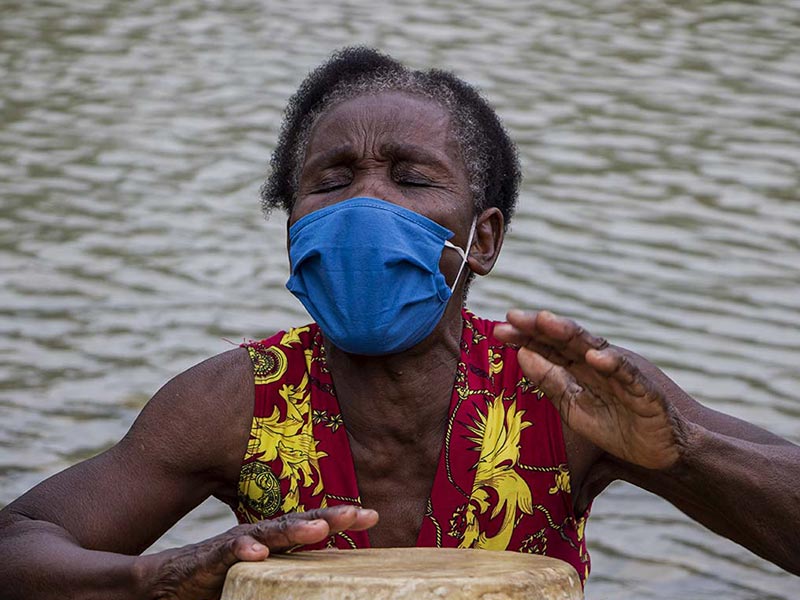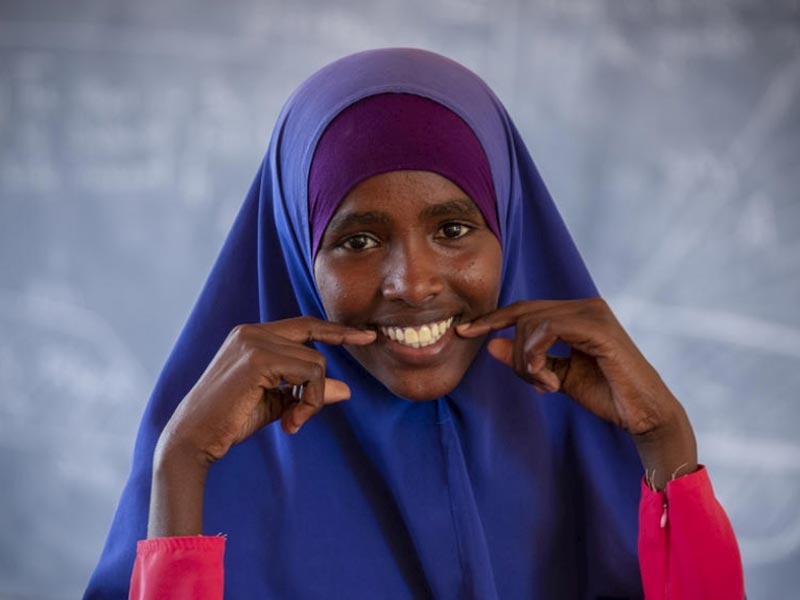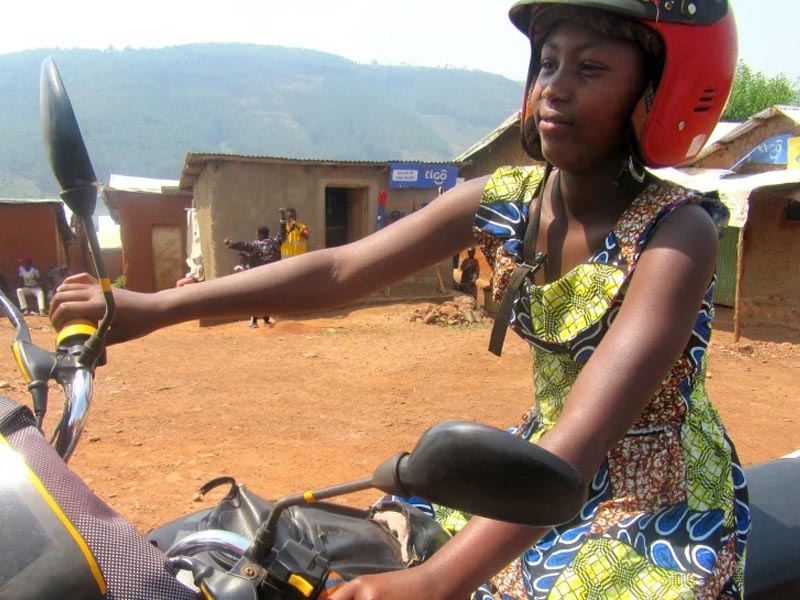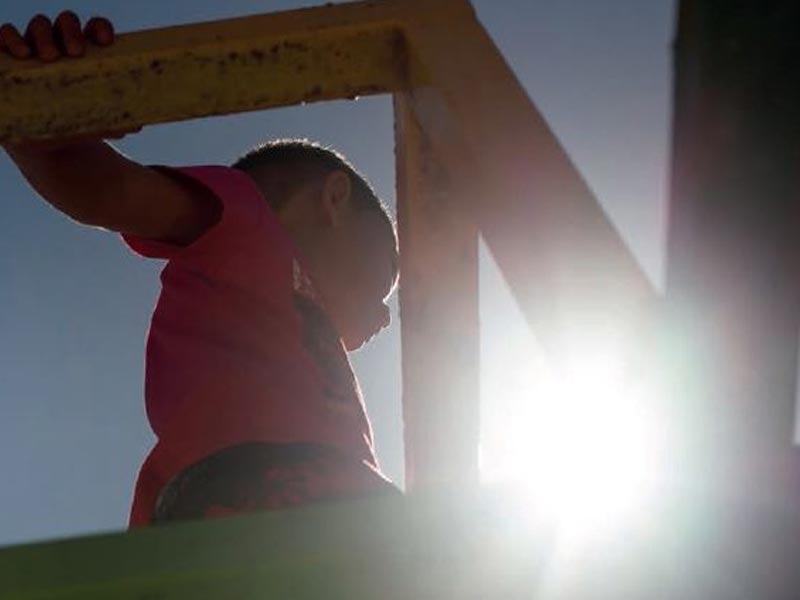Inclusive, Local and Accountable Engagement
Age, Gender and Diversity Accountability Report 2022
Indigenous women participate in a forum to discuss on challenges of the digital gap in Nahuizalco, El Salvador. © UNHCR/Enrique Pocasangre
“We are all part of the solution, and we must work together to create a just and harmonious world for people of all ages,… genders,… and other backgrounds.”
From the Advisory Board to UNHCR’s Task Team on Engagement and Partnership with Organizations led by Displaced and Stateless People.
What Were Major Achievements for AGD-related Work in 2022?
The Age, Gender and Diversity (AGD) Accountability Report 2022 presents the efforts made across UNHCR operations to operationalize the 2018 Policy on Age, Gender and Diversity. It provides a global analysis and examples of AGD-inclusive programming, accountability to affected people (AAP) and gender equality and includes reference to the central role played by grassroots and community-based organizations to ensure that no one is left behind.
KEY ACHIEVEMENTS IN 2022
AGD Inclusive Programming
8.4 million children accessed protection services provided by UNHCR and its funded partners, out of a total of 21.2 million forcibly displaced and stateless people.
Prevalence rate of persons with disabilities newly recorded in proGres nearly doubled from 2.2 per cent in 2021 to 4.3 per cent in 2022 (still below the 16 per cent global estimates).
40 per cent of operations reported having implemented activities addressing the needs of LGBTIQ+ persons.
Accountability To Affected People
72 operations conducted participatory assessments with groups of diverse age, gender and characteristics to inform programming and interventions.
HELP websites were active in 104 countries, with over 14 million individual visits made to them. 30 more Help Sites in the pipeline by the end of 2022.
69 per cent of operations have multi-channel feedback and response systems designed based on consultations with communities (65 per cent in 2021).
More than 28,000 individuals addressed through post-distribution monitoring to assess the impact of Cash-based interventions on their household situation.
Gender equality
Women and girls represented 58 per cent of the three million new individuals registered in proGres who were issued with individual documents
57 per cent of more than 8.2 million health consultations benefitted women and girls (UNHCR iRHIS).
51 per cent of the 10 million recipients of cash assistance were women (in line with 2021).
43 per cent of DAFI scholarship recipients to attend tertiary education were young females (41 per cent in 2021).
62 per cent female participation in livelihood and economic interventions (54 per cent in 2021).
73 per cent of UNHCR operations (131 countries reporting) had GBV services available for survivors and those at risk (in line with 2021).
AGD-Inclusive Programming
UNHCR’s new results-based management approach COMPASS supported the mainstreaming of AGD across programming phases by introducing features that allow disaggregation by AGD and introducing global markers for gender and disability.
At the operational level, UNHCR improved how it collects and uses the analyses of qualitative and quantitative data disaggregated by AGD to plan, implement, and report on programmes addressing the diversity of needs of displaced and stateless people. As a result of the increased use of the Washington Group questions on disability statistics in the registration system, the prevalence rate of persons with disabilities newly recorded in proGres (registration and case management system) nearly doubled from 2.2% in 2021 to 4.3% in 2022 (still below the 16% global estimate). Also, 8.4 million children accessed protection services provided by UNHCR and partners, while 40% of operations reported having implemented activities addressing the needs of LGBTIQ+ persons.
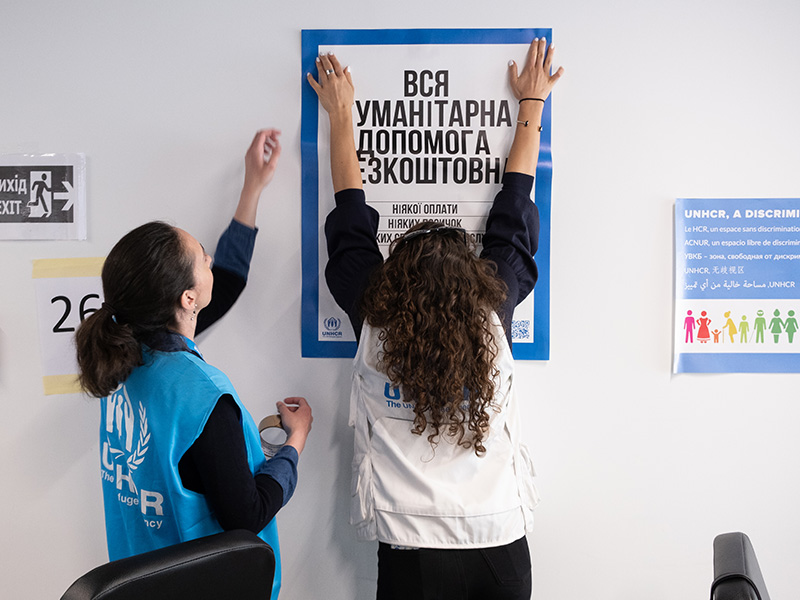
UNHCR staff at a cash enrolment center in Poland. © UNHCR/Maciej Moskwa
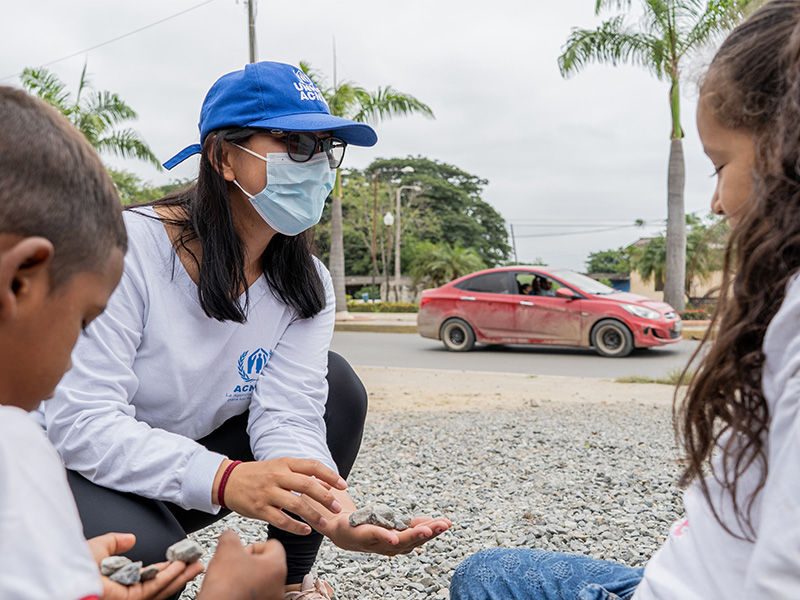
UNHCR staff plays with children at information point. Refugees and migrants arriving or transiting through Huaquillas receive assistance and key information from UNHCR, partners and other UN agencies at this information point. © UNHCR/Diana Diaz
Accountability to Affected People
UNHCR worked with forcibly displaced and stateless persons to enhance their participation and inclusion at all levels, from influencing programmes in field operations to global policies. In this regard, 72 operations conducted participatory assessments with groups of diverse age, gender and diversity characteristics and rolled out the Grant Agreement to ensure small-scale financial support to grassroots organizations. HELP sites were active in 104 countries, with over 14 million individual visits made to them by the end of 2022. UNHCR also integrated new technologies to collect feedback from displaced and stateless people as a result of which 69% of operations reported having multi-channel feedback and response systems that are designed based on consultations with communities. Finally, UNHCR continued to monitor the implementation of its programmes and use the feedback from communities to adapt and course-correct where necessary. As part of this effort, more than 28,000 individuals were targeted with post-distribution monitoring to assess the impact of cash-based interventions on their household situation.
Gender Equality
UNHCR operations continued to systematically promote the engagement of women and girls in forced displacement contexts particularly through networks of women- and girl-led organizations. Seven women and/or girl-led organizations were awarded the 2022 NGO Innovation Award. Further, 120 of 190 sport-related partnerships in 45 countries promoted the inclusion of women and girls while 43% of DAFI scholarship recipients to attend tertiary education were young women (41% in 2021). Women’s participation in livelihood and economic interventions also stood at 62% in 2022 (54% in 2021).
UNHCR supported women and girls in accessing registration and individual documentation. As a result, women and girls represented 58% of the three million new individuals registered in proGres who were issued with individual documents. Gender-based violence (GBV) services were also made available for survivors and those at risk in 73% of UNHCR operations (131 countries reporting, in line with 2021) while 57% of more than 8.2 million health consultations benefitted women and girls (UNHCR iRHIS). Finally, UNHCR focused on ensuring equal access to and management of assistance as key element to advancing women’s roles within the household and in their community, with 51% of the 10 million recipients of cash assistance being women (in line with 2021).
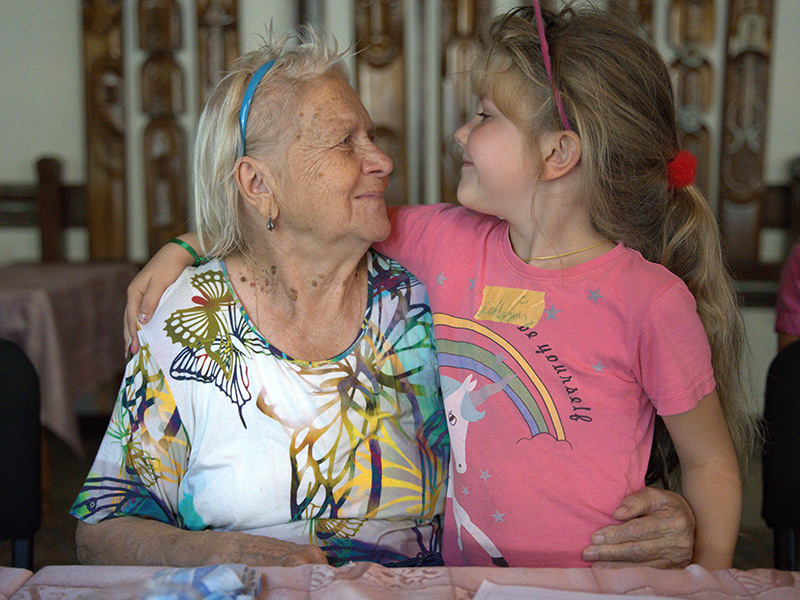
A great grandmother and her great granddaughter staying in one of the collective centres in the west of Ukraine, after they were evacuated from their village due to heavy fighting and shelling. © UNHCR/Igor Karpenko
2022 Challenges
Many operations have recognized in their annual reporting that external factors such as political instability, conflict and disasters, or deliberate social and cultural constraints restricted full and systematic access to all forcibly displaced and stateless persons. These factors at times negatively affected efforts to work with community structures.
Furthermore, while the 2022 AGD report shows that digital AAP advanced significantly, operations also highlighted that challenges remain for their use. Causes include the limited connectivity and availability of electricity in remote areas, the conservative approaches in communities limiting the uptake of new solutions, and the lack of sufficient human resources to follow-up on individual feedback and close the feedback loop or build partners’ capacity.
While all forcibly displaced and stateless persons can participate in activities across programming phases in principle, obstacles remained for certain groups, particularly LGBTIQ+ persons, persons with disabilities and older persons.
Likewise, several operations highlighted that human and financial resource constraints hampered the work of UNHCR with youth, an area of work that is increasingly challenging to prioritize at global, regional and country levels, within the budgetary parameters.
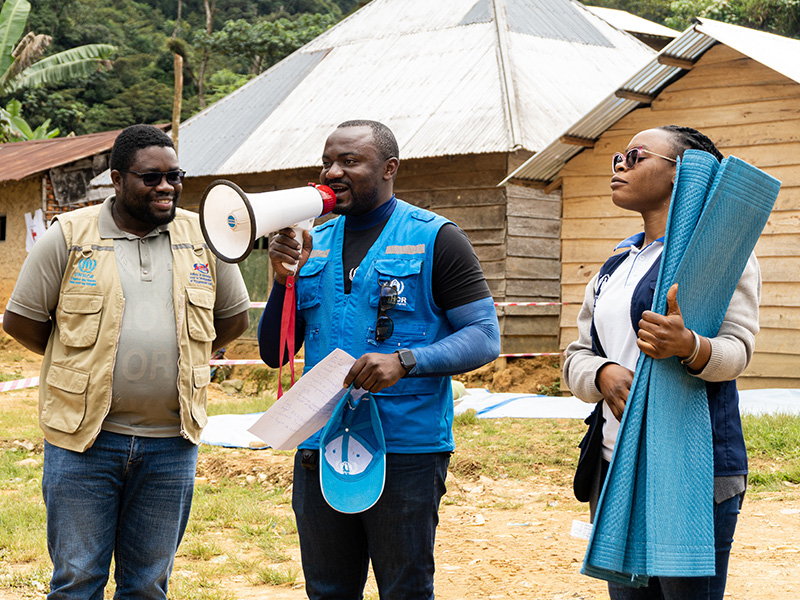
UNHCR staff and partner, AIDES, get ready to distribute non-food items to 250 internally displaced families with heightened protection risks in South Kivu, DRC, to complement shelter assistance. © UNHCR/Antonia Vadala
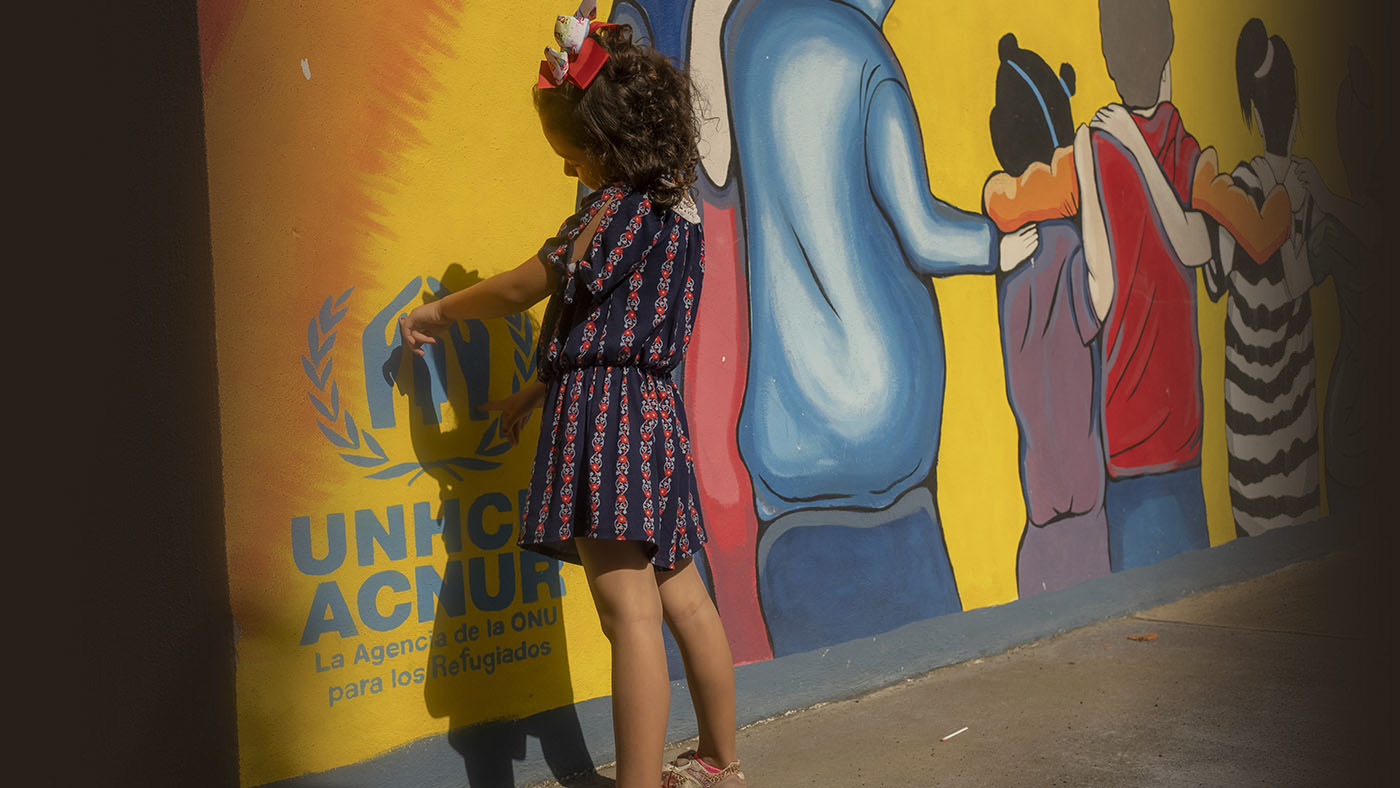
Guatemala. A refugee girl plays with her shadow in front of a mural of Solidarity Cities, near a health center supported by UNHCR. © UNHCR /Shawkat Alharfoush
What next?
The 2022 AGD accountability report provides an overview of the efforts that UNHCR made throughout the year to comply with its AGD Policy. The following general considerations indicate actions at various levels that UNHCR may undertake to further advance the systematic implementation of the 2018 AGD Policy.
- Ensure that participatory methodologies engage groups across the AGD spectrum and are used in all programming phases.
- Continue the institutional work of UNHCR to integrate AGD dimensions into various aspects of programme policies, tools and procedures, including COMPASS, to develop partner agreements, to monitor deliverables and to ensure coherent and systematic reporting on AGD.
- Provide support to operations and enhance capacity strengthening on AGD and intersectional approaches in programming.
- Continue to invest in capacity development and technical tools to improve the disaggregation of data of forcibly displaced and stateless persons, beyond age and sex, in registration as well as in monitoring, reporting and evaluation.
- Promote the engagement of forcibly displaced and stateless persons in the selection, design and implementation of digital solutions and technologies to enhance two-way communication, and feedback and response systems.
- Foster community-based approaches, in protection and beyond, that consider the capacity and agency of community structures, community-based and community-led organizations representative of diverse AGD groups.
- Continue to invest in tools to fully utilize information collected from consultations with forcibly displaced and stateless persons, particularly qualitative data. This will require continuous investment in innovative data collection and analysis solutions to ensure its timely and effective integration into the programming.
- Build on successful initiatives and good practices and increasingly invest in women and girls’ participation, management and leadership, to overcome negative attitudes and gender norms.
- Reinforce engagement with development partners and governments to work towards the inclusion of forcibly displaced and stateless people in national systems or non-discriminatory access to these systems.
- In line with the recommendations of the UNHCR longitudinal evaluation, consider AGD as a concept and approach beyond the protection domain of UNHCR work and reaffirm it as a corporate commitment across the whole of the organization.
Experiences from (multi-)country operations covered in the 2022 AGD-Report
The AGD accountability report 2022 includes examples of implementing the AGD policy across UNHCR operations. Read the full report to discover these examples.
